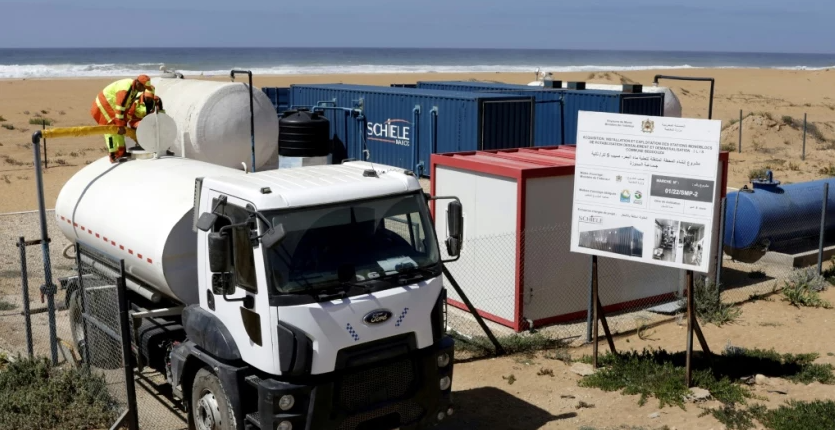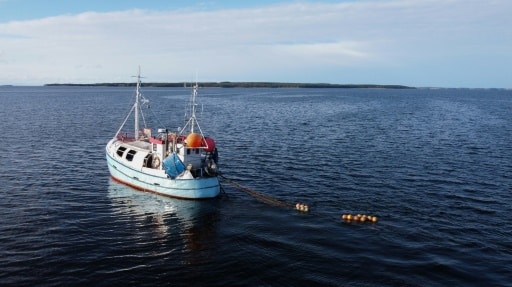Residents of a fishing village in Morocco along the Atlantic never imagined they would one day depend on the ocean for their drinking water, which is now supplied by a mobile desalination station—a technology that has become essential for their survival in the face of prolonged drought.
In the Safi region (central-west), a mobile station consisting of two tanks and two containers has been set up since June 2023 on Cap Beddouza beach. Seawater is filtered there, and minerals are added before it is distributed « daily and for free » to 45,000 people within a radius of up to 180 kilometers, explains Yassine Maliari, director of the local water and electricity distribution agency.
Drought. In Beddouza, the Ministry of Interior has deployed three of the 44 « monobloc » mobile desalination stations that Morocco has installed since April 2023. Additionally, 219 more are underway to meet the urgent needs of about three million residents in rural areas. These mobile installations, with production capacities ranging from 360 to 3,600 cubic meters of water per day, are considered « the best possible solution due to their ease of installation and scalability, » says Mr. Maliari, who also highlights their more affordable costs compared to larger structures—around 12 million dirhams, or about 1.1 million euros. For cities with enormous demands, large desalination plants are under construction, including a megaproject in Casablanca, which will add to the existing 12 stations with a total capacity of 179.3 million cubic meters per year.
Source: lopinion



